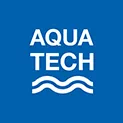Rita Amaral, executive director at Lis-Water, who is spearheading Portugal's water and sanitation strategy and pioneering an international think tank and knowledge centre dedicated to revolutionising water governance, shares her views on water innovation ahead of the upcoming Aquatech Innovation Forum.
Background and inspiration
We’re delighted to have you speaking in the opening keynote panel and with Lis-Water as a knowledge partner at the Innovation Forum. Can you tell us about your background and journey in the water and sanitation sector, and what inspired you to pursue a career in this field?
I graduated in Civil Engineering, specialising in hydraulics and water resources, where I realized the vital importance of water supply and sanitation services to humanity. I began my career by working on various consultancy projects, supporting water utilities in developing plans and strategies.
Motivated to make a meaningful impact, I pursued a Ph.D., focusing on improving strategic investment planning, asset management, and policy and regulatory measures for water utilities.
Following my doctoral studies, I founded LIS-Water, an international think tank, with the goal of enhancing water governance. I now serve as its executive director, collaborating with governments, regulators, and utilities in over 30 countries to improve water and sanitation services.
Diverse experience shaping perspective
You've been involved in various roles, from consulting to research and policy development. How has this diverse experience shaped your perspective on water and sanitation issues?
As a water engineer working in various roles and engaging with different perspectives, I've come to realise that three essential pillars are vital for a successful water sector. These pillars encompass designing sound public policies, strengthening regulatory bodies and models, and collaborating closely with water utilities.
Sound public policies are fundamental for delivering adequate services to the population. They should constitute effective government action plans aimed at co-ordinating state resources and private activities to achieve socially relevant and politically determined collective objectives. These policies should employ various instruments and incentives that contribute to the same goal while optimising results based on available resources.
Regulatory authorities play a crucial role in interpreting and implementing these defined public policies. They serve as a pivotal component within the legal framework and government-established public policies. Regulators can act as the catalyst needed to translate public policies into practical actions for utilities on the ground. They should not only interpret but also contribute to the improvement of public policies.
In summary, strengthening synergies among public policy, regulation, and agile water service providers is the correct path to addressing the challenges in the water sector.
Key challenges in developing Portugal’s strategy
Your involvement in defining Portugal's national strategy for the water and sanitation sector for 2030 is impressive. What were the key challenges and priorities in developing this strategy?
To sustain and build upon Portugal's progress over the last 30 years, it's crucial that our public policies evolve towards achieving excellence in essential services, reducing existing sector disparities, and ensuring long-term sustainability.
The vision outlined in the 2030 strategy aims to deliver outstanding water services that provide effective, efficient, and sustainable solutions to Portuguese society. This vision also seeks to generate economic, environmental, territorial, and societal benefits, all while aligning with sustainable development principles and fostering a more circular economy.
To achieve these goals, we've crafted a comprehensive strategy consisting of 20 objectives and 70 measures, accompanied by various incentives. The overall estimated investment for this initiative is approximately EUR 6 billion.
Our approach focuses on developing an ambitious strategy while also establishing clear priorities and implementing intelligent incentives to drive progress.
Innovative approaches and technologies
Can you highlight some innovative approaches or technologies you've come across in the water and sanitation sector that have the potential to address pressing global challenges?
I believe that the water sector can effectively address pressing global challenges through the adoption of the most relevant and innovative approaches and technologies. These include climate change adaptation in water services, enhancing corporate governance, redesigning processes and incentives within the sector to foster more agile water organisations, cultivating a new asset management culture for efficient operations, and advancing digitalisation, decarbonisation and circular economy practices in the sector.
Expectations for the Innovation Forum
The upcoming Aquatech Innovation Forum is generating excitement across the industry. Could you share what you're most looking forward to at this event, and how do you envision it propelling the conversation around water technology?
I’m really excited to gain insights into the latest innovations reshaping the water sector. I have a deep passion for learning how various countries, organisations, and individuals tackle similar challenges. I hope this exploration will not only be enlightening but also inspiring as we uncover the key factors for success and identify the barriers we must overcome to accelerate these transformations.

Shifting towards innovation
As a keynote speaker for the opening session, what reactions do you hope to provoke among the attendees? What key message do you intend to convey to inspire a shift towards more innovative and sustainable water solutions?
I will emphasize the pressing need for a more comprehensive approach to water services that integrates strategy, management, engineering, economics, finance, legal and social sciences, as well as information technologies. This holistic approach is essential to effectively address both the existing and emerging challenges in the water sector.
To drive progress, we must reevaluate the sector's processes and incentives. Water technology is essential but not enough. Innovation can either hinder or benefit water companies, depending on whether it is seamlessly integrated into a well-rounded strategy, established processes, and supported by intelligent incentives.
This is precisely why LIS-Water is dedicated to advancing knowledge and innovation while ensuring their seamless transfer to policymakers, water professionals, the industry, and society at large.
Pressing challenges on the horizon
Finally, what do you see as the most pressing water and sanitation challenges on the horizon, and what steps should governments, organisations, and individuals take to address them effectively?
There is a growing awareness of the imperative for countries to respond more effectively to the challenges within water services, which are recognised as among the highest priorities for humanity.
Since 2015, all countries have been tasked with meeting the United Nations Sustainable Development Goals (SDGs) by 2030, with SDG 6 - Clean Water and Sanitation for All - holding a central, interwoven role vital for achieving all other SDGs. Various international and national policy documents have imposed similar obligations and recommendations on nations worldwide.
In response to these challenges, numerous initiatives have been launched, accompanied by substantial investments in the sector across many countries. However, despite these efforts, the global results continue to fall short of our expectations, and it often feels like we are losing the battle.
To avoid this outcome, we must foster an ecosystem where governments, organisations, sector professionals, support agencies, educational institutions, industry, startups, and society collectively work towards enhancing water governance. This is why we are fully committed to the Water Action Agenda, which was initiated at the UN 2023 Water Conference. Our goal is to establish a Global Coalition for Better Policies and Regulation of Water and Sanitation Services, serving as an international cooperation platform dedicated to driving improvements in public policies and regulation for water and sanitation services worldwide.
Improved water governance has the potential for transformative impacts on both the sector and people's lives.






